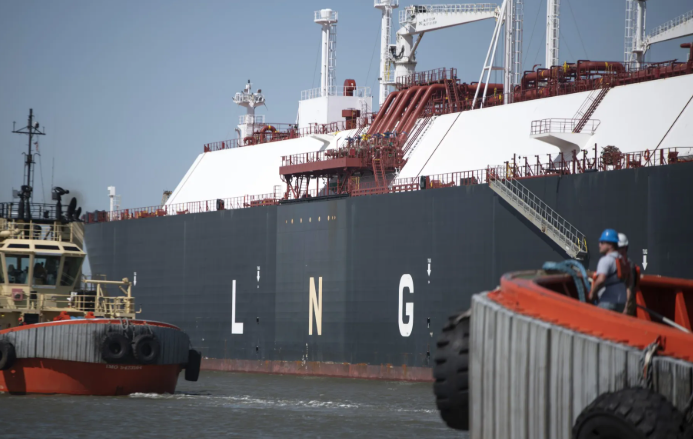EU postpones ban on Russian liquefied natural gas imports
17 April 11:48
European officials have rejected the inclusion of Russian liquefied natural gas (LNG) in the new sanctions package due to disagreements among governments and uncertainty about alternatives. Reuters writes about this with reference to representatives of the European Union, "Komersant Ukrainian" reports
The European Commission is expected to propose the 17th package of sanctions against Russia by June, although Reuters’ interlocutors note that work on it is progressing slowly.
The last time the European Commission discussed a possible ban on Russian LNG imports with EU governments was in January, when the 16th sanctions package was being prepared.
Earlier, US President Donald Trump has repeatedly stated that he wants the EU to buy more American gas. According to Reuters, Brussels sees this as a possible lever in negotiations to persuade the White House to reduce customs tariffs.
One of the agency’s interlocutors said that the European Commission does not want to risk losing Russian LNG in order not to lose ground in negotiations with the United States.
In addition, the European Commission and EU governments fear becoming newly dependent on the United States, which is the third largest gas supplier to the EU after Russia and Norway, Reuters adds.
At the same time, European officials intend to adopt a new roadmap for the abandonment of Russian energy resources by 2027. The plan is to be announced in May.
It should be noted that liquefied natural gas from Moscow remains one of Europe’s last major energy dependencies after the end of last year when gas supplies through pipelines through Ukraine were cut off. Last year, the EU imported record volumes of Russian liquefied natural gas, with France, Spain, and Belgium being the largest importers. This trend continued in 2025. In addition, some EU countries still import nuclear fuel from Russia.
A group of 10 EU countries has been pushing for tougher measures against Russia by imposing restrictions on natural gas and LNG. However, these efforts are complicated by the need to achieve unanimity among all 27 members of the bloc. The Commission has set itself the non-binding goal of completely cutting off Russian supplies by 2027.
Follow us on Telegram: the main news in brief
Europe and gas
As of the beginning of 2022, the EU was 40% dependent on Russian gas. In 2021, 65% of the gas purchased by Germany was Russian. In the third quarter of 2023, only 12% of the gas imported by the EU remained Russian.
On January 1, 2025, due to the expiration of the contract, Ukraine stopped transiting Russian gas. At the same time, some EU countries, such as Hungary and Slovakia, remain dependent on it. These countries’ contracts with Gazprom provide for gas supplies through the Ukrainian gas transportation system. Austria has signed a contract for gas supplies until 2040, but it has already declared that it has become independent of Russian fuel.
Slovakia and Hungary insist on extending the agreement. Slovakian Prime Minister Robert Fico even threatened to cut off electricity supplies to Ukraine and reduce support for refugees if Kyiv did not give in.
With both Nord Stream and the Ukrainian gas transportation system out of commission, Russia will be able to supply gas to Europe only through the Turkish Stream.
According to the Center for Research on Energy and Clean Air (CREA), since the beginning of the full-scale Russian invasion, the European Union has bought 212 billion euros worth of energy from Russia.
Follow us on Telegram: the main news in brief









